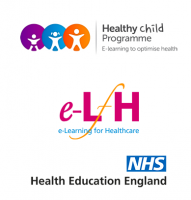Glandular Fever Course for Nurses



This session is intended to give a brief overview of the epidemiology, pathophysiology, clinical features and management of glandular fever in adolescence. Throughout this session, the clinical name for glandular fever, infectious mononucleosis, is used.
Learning Objectives
By the end of this session you will be able to:
- Identify patients with glandular fever
- Remember the differential diagnosis
- Describe the clinical course
- Remember and manage sequelae
Infectious mononucleosis is often referred to as glandular fever. It is a clinical syndrome most commonly caused by Epstein-Barr virus (EBV) infection. Epstein-Barr virus causes approximately 90% of the cases of infectious mononucleosis, with the remainder due largely to cytomegalovirus, human herpesvirus 6, toxoplasmosis, HIV and adenovirus
Dr Park is a GP principal in Sheffield and in training to become a GP trainer. Her past experience includes posts in Family planning (specialist youth clinic), Genito-urinary medicine, Eating disorders, Obstetrics and Gynaecology. She is a member of the RCGP Adolescent task group and the Sheffield sexual health network. Her interest in Adolescent healthcare was sparked by a medical student elective to a specialist primary care adolescent clinic in Montreal, Canada.

- Anaesthesia | Paediatrics | Pharmacokinetic,Pharma...
- Posted By eIntegrity Healthcare e-Learning
- Posted Date: 2024-11-18
- Location:Online
- This session will provide an overview of pharmacokinetic (PK) maturation during infancy and the use of size models to describe PK differences between children and adults. It will go on to describe known pharmacodynamic (PD) differences and consider the im
- Anaesthesia | Paediatrics | Opioids In Paediatrics...
- Posted By eIntegrity Healthcare e-Learning
- Posted Date: 2024-11-18
- Location:Online
- This session looks at practical opioid pharmacology applied to the clinical use of different agents for neonates, infants and small children.
- Anaesthesia | Paediatrics | Advanced Paediatric Li...
- Posted By eIntegrity Healthcare e-Learning
- Posted Date: 2024-11-18
- Location:Online
- This session addresses the advanced management of the critically ill child and the child in cardiac arrest.
- Anaesthesia | Paediatrics | Head Injury
- Posted By eIntegrity Healthcare e-Learning
- Posted Date: 2024-11-18
- Location:Online
- This session describes the principles of stabilisation and management of a child with a head injury and how this differs from the management of an adult patient. This includes methods of assessment, effects and management of raised intracranial pressure,
- Anaesthesia | Paediatrics | Multiply Injured Child...
- Posted By eIntegrity Healthcare e-Learning
- Posted Date: 2024-11-18
- Location:Online
- This session looks at the initial management and stabilization of the multiply injured child with reference to published trauma guidelines.







